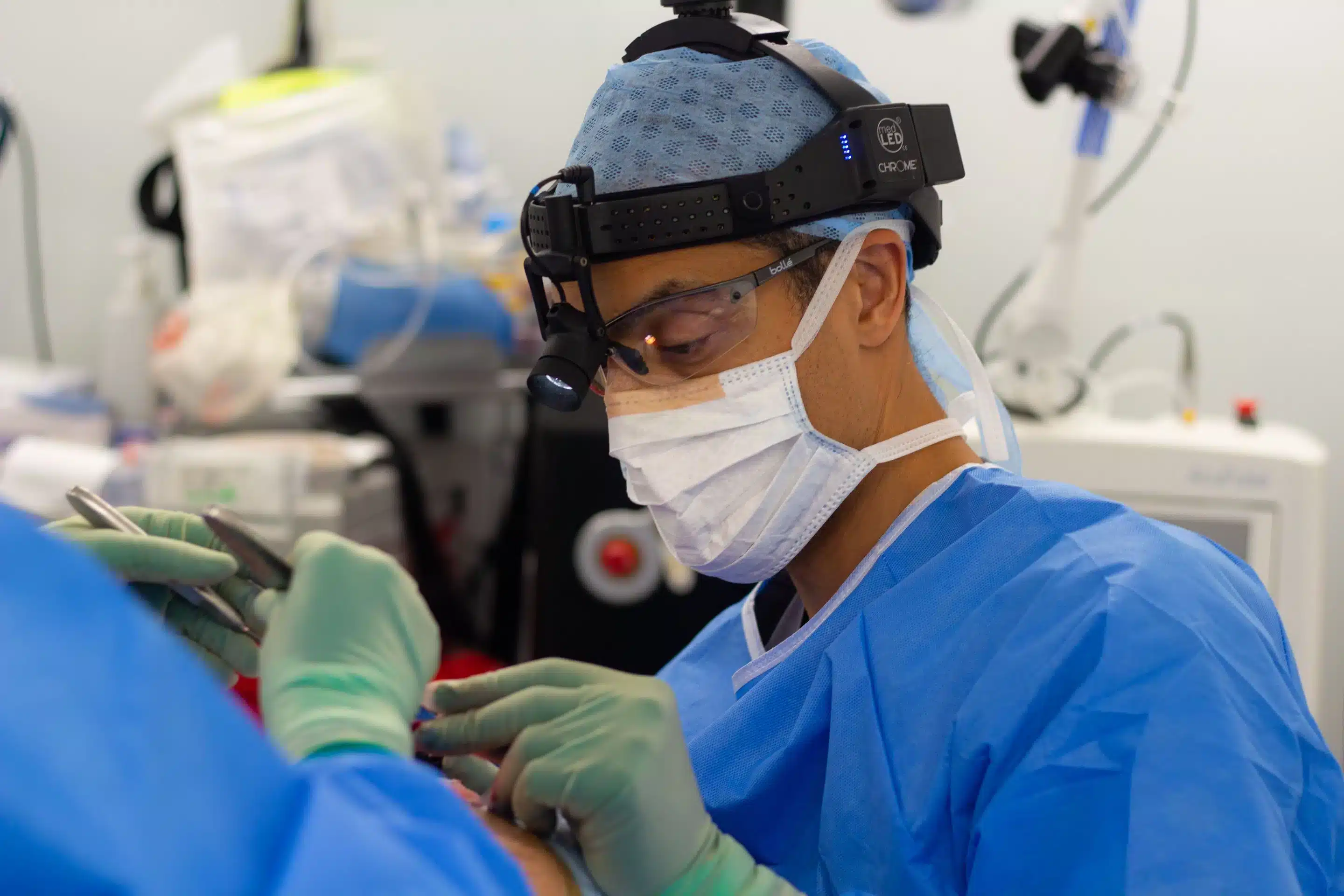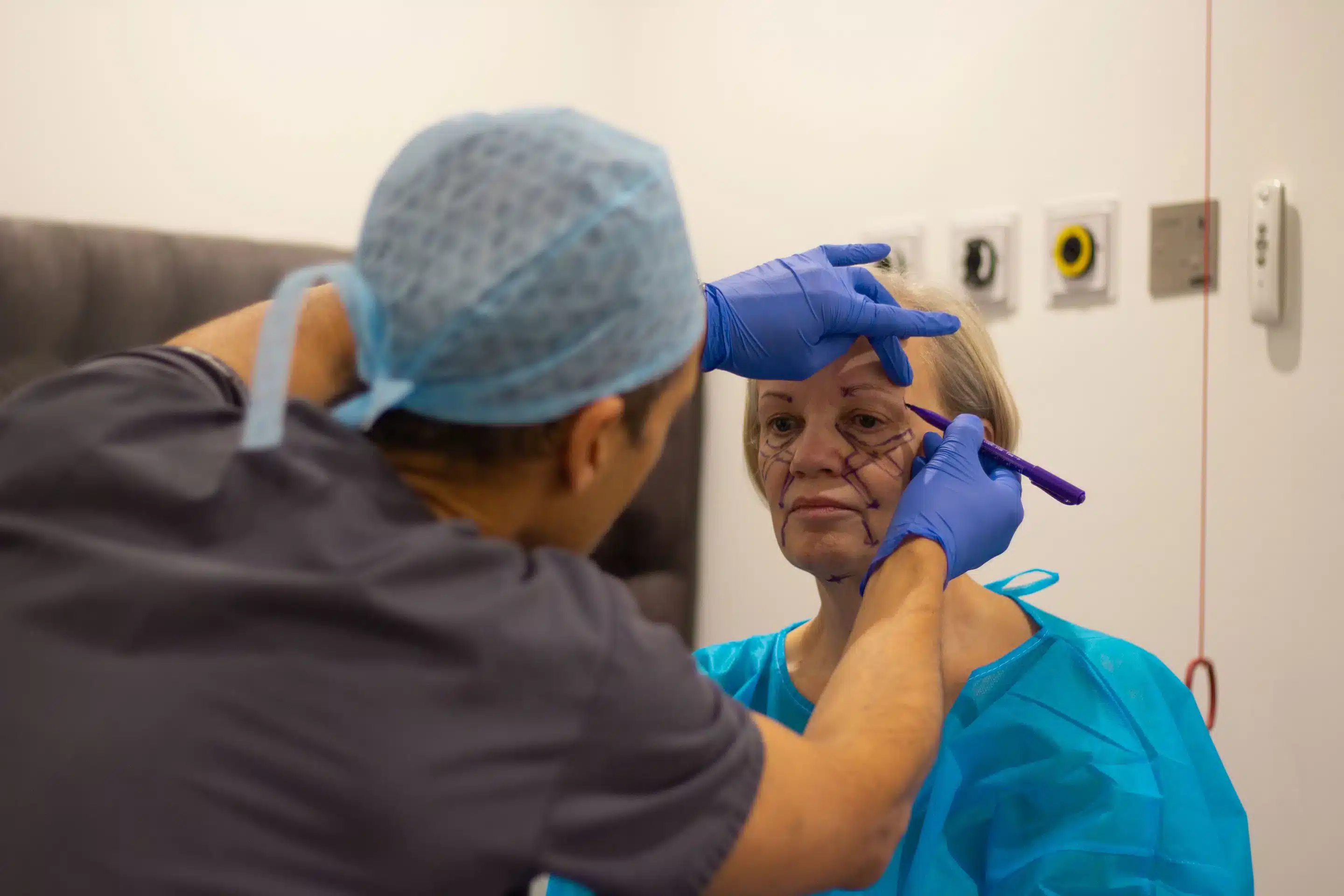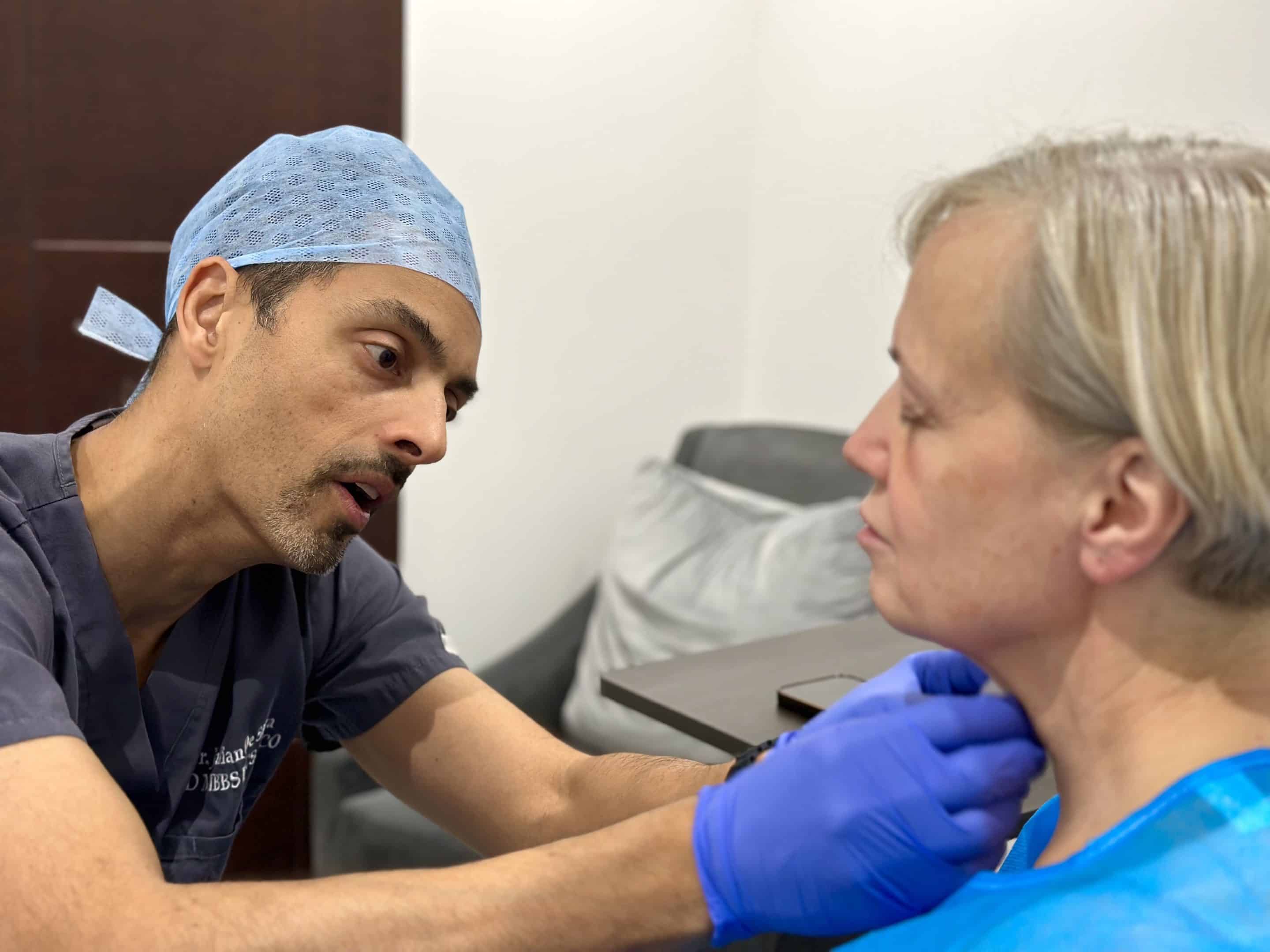
Knowing how to reduce swelling on face helps you manage it.
Swelling in the face is a common side effect of any facial surgery. Facial swelling usually increases for the first 48 hours following surgery, then begins to subside after about a week.
Given this, there must be a way to reduce facial swelling symptoms. Well, you’re in luck.
In this article, I will talk about how to reduce facial swelling. I will also answer the most common questions about facial swelling after cosmetic surgery.
How to Reduce Facial Swelling After Surgery

You can take medically reviewed steps to manage your swollen face after jaw surgery.
Here’s how you can reduce facial swelling after a surgical cosmetic procedure such as rhinoplasty, facelift, and neck lift:
1. Use ice or cold pack.
We don’t see athletes on the sidelines with ice packs on their injuries by chance. Lowering pain and inflammation will help kickstart the healing process. Since your body has been harmed by incisions after plastic surgery, you need to start its recovery.
For the first three days after surgery, you should apply ice packs to the affected areas for at least 10 minutes. Place a piece of cloth with ice or cold pack on the inflamed area rather than placing the ice straight on your skin.
2. Avoid hot showers.
You should avoid taking hot showers for the first three days following surgery. It’s because heat can cause facial swelling.
In addition, if a powerful stream of water comes into touch with the operation site, healing might be impeded.
3. Keep your head elevated.
Even when you’re sleeping, keep your head raised once you’ve returned home from surgery. Use a few pillows in your bed to prop yourself up. As an alternative, you can sleep in a reclining chair if possible. If you choose to lie on the couch, prop yourself up using the couch’s arms or couch cushions.
Remember, facial swelling is produced by an excess of blood and fluids accumulating in and around the surgical site. Keeping your head raised will allow those fluids to flow away from the affected area. Doing so should help prevent or lessen facial swelling.
4. Do not eat or drink hot items.
Avoid eating or drinking anything hot for the first 24-48 hours after your surgery (e.g., coffee, hot chocolate, soup). The heat in your meals and beverages may actually increase the amount of swelling in your mouth.
5. Avoid smoking and drinking.
Stop smoking eight weeks before a cosmetic surgery to avoid difficulties. At the very least, stop smoking and drinking alcohol after your surgery. Don’t start again until you’ve recovered. Too much alcohol and tobacco might decrease your body’s ability to heal and raise your risk of infection and allergic reaction.
Smoking reduces the quantity of oxygen in your blood, making it more difficult to avoid or recover from a bacterial infection. Meanwhile, alcohol impairs the function of your heart and immune system, which can lead to difficulties following surgery.
6. Use a warm compress after 48 hours have passed.
You can go from cold water ice and cold packs to warm compresses once the first 48 to 72 hours have passed since your operation. You can also do this whenever you observe the swelling has started to reduce.
This depends on your doctor’s instructions, but in general, you can do this four times a day, for 30 minutes at a time.
Applying a warm compress or heating pad (on a low setting) to the swollen area of your head or face can help. The warmth will aid to stimulate blood flow to the area. Doing so can reduce swelling and speed up the healing process.
7. Change your bandages and clean your incision as directed.
You may have stitches and/or bandages over an incision on your face as a result of your surgery.
Follow your doctor’s recommendations for how often you should change your bandages and how you should clean the wound. In addition, closely follow your doctor’s recommendations for keeping the area dry. Keep an eye out for any infections as well.
If you see any signs of infection, call your doctor and get immediate medical attention.
8. Make sure you get enough nutrients.
Keep up a healthy diet that includes a reduction in the amount of salt you take in. Salt is harmful to the management of facial swelling and should be avoided while you are recovering from your injury.
Vitamin K, which is a fantastic component to reduce facial swelling, may be found in abundance in greens, eggs, and yogurt, all of which are excellent sources of vitamin K.
Consuming a sufficient amount of water is also essential to achieving optimal health and ensuring that your body continues to perform at its best.
This is crucial during the period following surgical intervention. The body will be able to mend properly and will have less bruising and facial swelling after surgery if you keep your water level at a healthy level.
How to Reduce Bruising After Surgery

You can take medically reviewed steps to bruising on your swollen face after facial or jaw surgery.
Here’s how to reduce bruising after surgery:
1. Apply some heat.
Heat can be used to improve circulation and blood flow. This will aid in the removal of trapped blood once the bruise has formed.
Heat can also be used to relax tense muscles and reduce discomfort. A heating pad or a hot water bottle can be used. As an alternative, you can enjoy a hot bath.
2. Elevate yourself.
You must also raise the wounded area above your chest. This aids in the relief of pain and the drainage of fluid from the injured area.
Pressure and compression can also both be reduced by elevating the body. This provides you with the opportunity to rest and relax, which can aid in the healing process.
3. Compress.
Put a stretchy bandage around the hurt area. This squeezes the area and stops blood from spreading out.
This pressure can make a bruise less severe and also reduce pain and puffiness.
4. Try arnica.
Arnica is a homeopathic herb that is used to heal bruising. It is supposed to reduce inflammation and swelling. Topical arnica ointment effectively decreased laser-induced bruising.
Apply arnica ointment or gel to the bruise many times a day.
5. Use vitamin K cream.
Vitamin K helps blood clot. Studies show that vitamin K cream can make bruises from treatments like lasers less severe.
For best effect, put vitamin K cream on the bruise two times a day.
6. Try aloe vera.
Aloe vera can help relieve pain and inflammation. Make sure to use pure, less processed aloe vera gel. Carefully read the label to see if there are additives and other harmful ingredients before applying.
7. Use vitamin C.
Vitamin C can reduce swelling and help wounds get better quicker.
You can find vitamin C in gels, creams, and liquid forms to put on the skin. It’s also in pill form. Plus, many fresh fruits are rich in vitamin C.
8. Have some pineapple.
Bromelain is something found in pineapples. It can make a bruise less noticeable and reduce redness and swelling.
You can get bromelain by eating pineapples, taking pills, or using creams with bromelain in them.
9. Herbal supplements.
Dr De Silva gives all patients a herbal medicine that has been shown to reduce inflammation and enhance recovery. This includes arnica and bromelain and can be used to treat bruises.
How Long Does Facial Swelling Last?

Generalised facial swelling and its accompanying symptoms don’t last long when you get proper medical attention.
How long facial swelling lasts varies from one patient to another.
If you had cosmetic surgery, swelling will usually go down in five to seven days. Meanwhile, bruising will dissipate in 10 to 14 days. Due to these, it could be difficult to eat at first.
If you have stitches, they may need to be removed around a week following surgery.
You’ll also probably need a few weeks to recover from cosmetic surgery. In addition, revision surgeries, such as revision blepharoplasty may require a longer recovery period.
When you can go back to work also depends on the type of surgery you have and the job you do. As a rule of thumb, you may go back to work in as fast as two weeks, if your job doesn’t require intense physical activities.
How to Deal With an Allergic Reaction

A reaction won’t be a medical emergency when you follow professional medical advice.
In some cases, facial swelling might lead to an allergic reaction. This may show up for up to a few days after your surgery.
Severe allergic reactions after surgery may happen for many reasons, including allergies to certain medications or anaesthesia. If you suffer from medical conditions that produce allergies, inform your doctor immediately after your first consultation.
Since allergic reactions can be caused by anaesthesia, make sure that your doctor is using sedation anaesthesia, since it’s safer than general anaesthesia.
My clinic at Harley Street, London uses sedation, so you are in safe hands.
When to See a Doctor

If you’ve been experiencing facial swelling or trouble breathing, see a doctor.
A post-operative appointment with the plastic surgeon will take place within the first two weeks after you have undergone surgery. At this appointment, your doctor will remove the majority of the stitches and/or staples that are currently on your face.
The physician will also check to see if the wounds have a healthy appearance and are healing properly.
You need to contact the doctor immediately if you encounter any issues before your scheduled appointment. This includes difficulty breathing, bleeding, a severely puffy face, and severe pain.
Visit Julian de Silva – Facelift, London
Facial swelling is a common, medically reviewed side effect of facial surgery. However, you must work with a medically reviewed clinic to make sure that you’re being taken care of after the surgery. This will help you manage the side effects and reduce swelling in the face.
Want to know more about facelifts? Check out our Patient’s Guide to Facelift Surgery to learn more about the facelift surgery process.
Do you want to have your cosmetic surgery done by an experienced and highly qualified surgeon in London? Contact us to book a consultation with me, Dr. Julian De Silva now!





